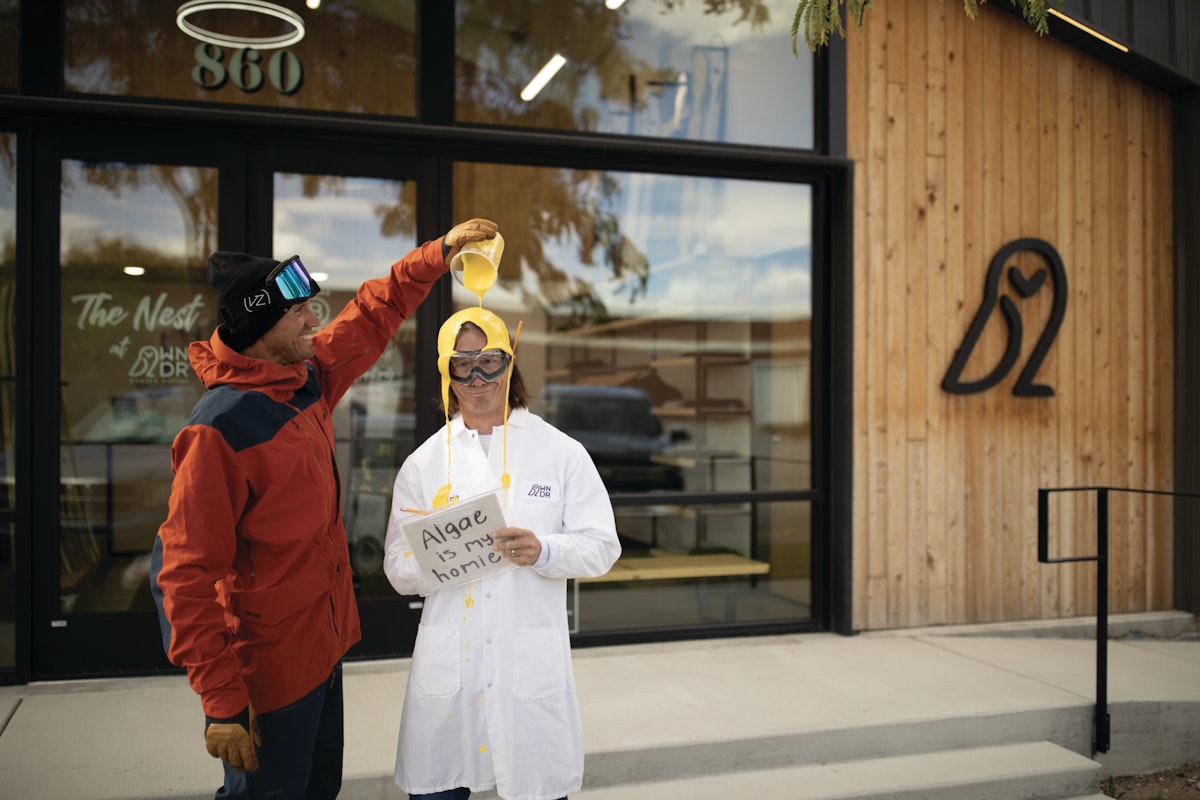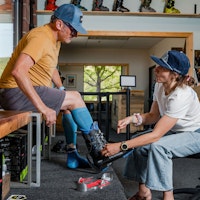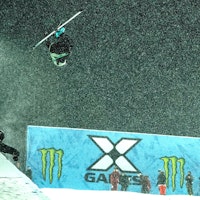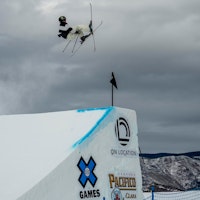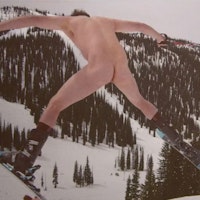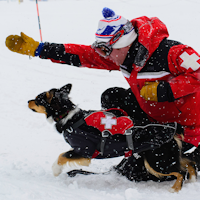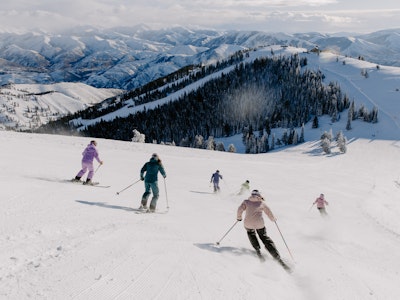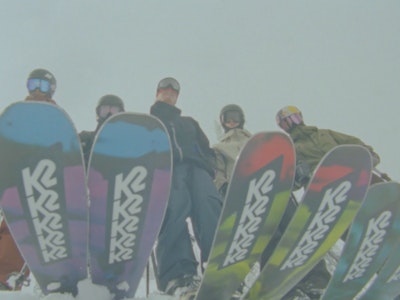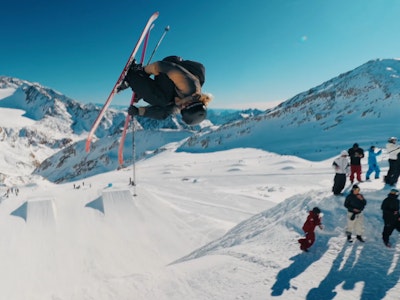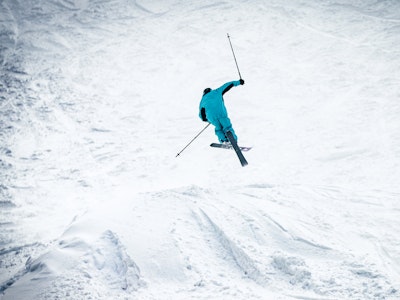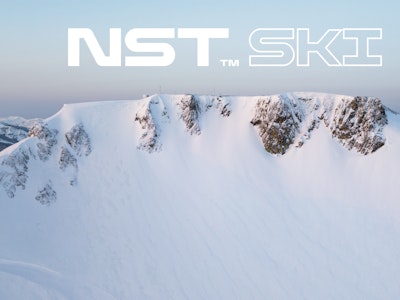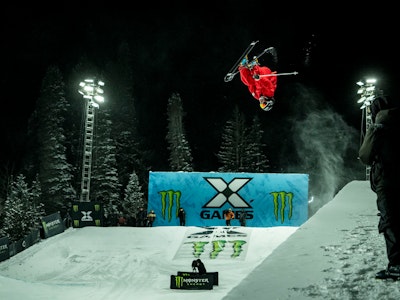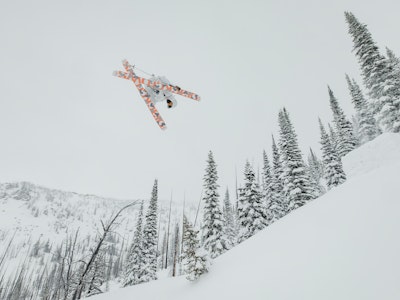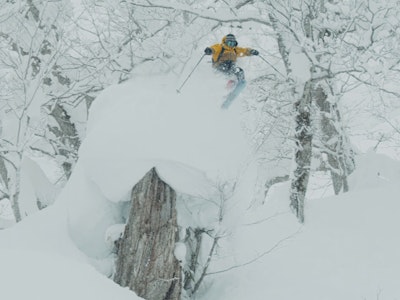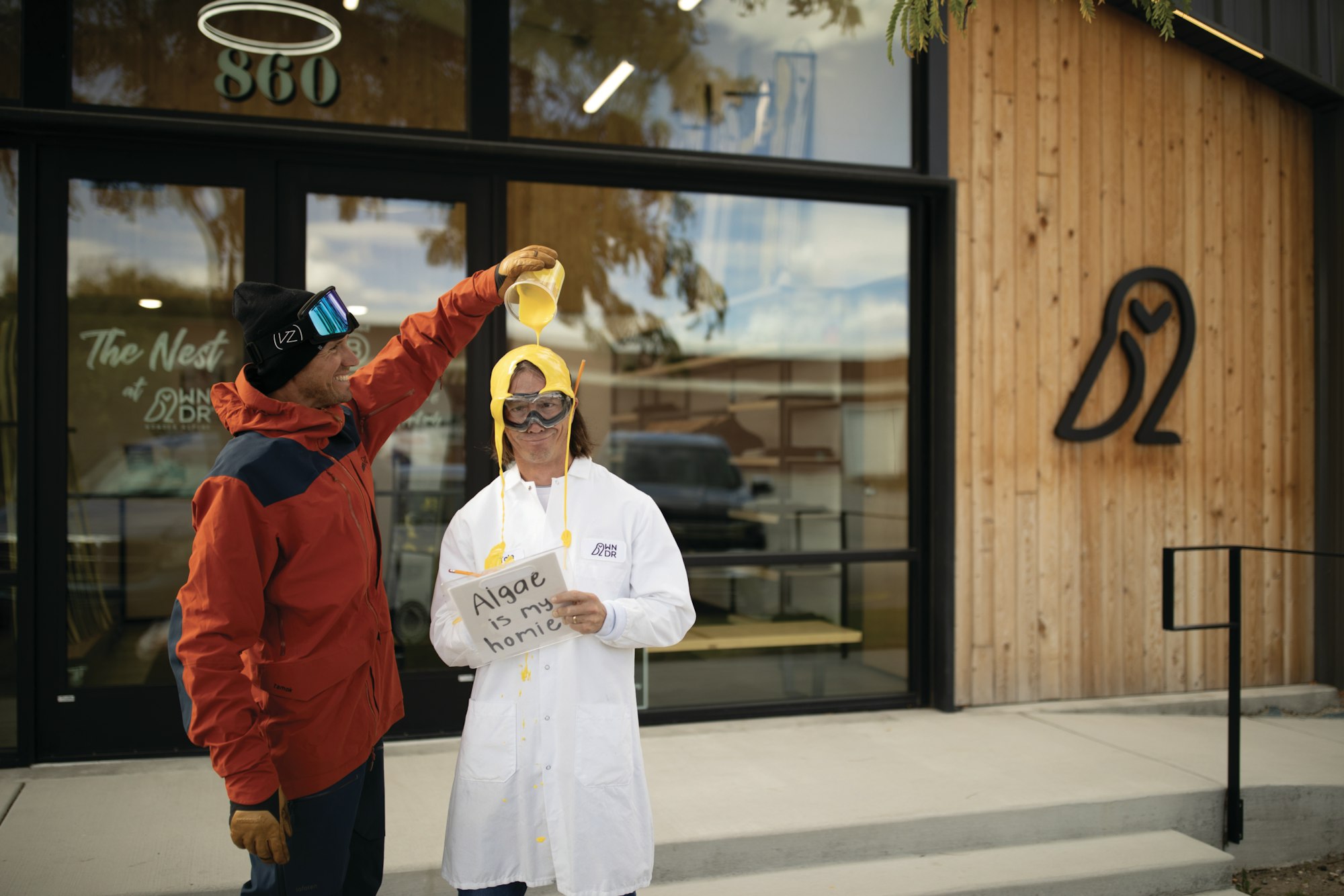Featured Image: Kevin Kinghorn
Matt Sterbenz and Pep Fujas wanted to make freeskiing cool. They succeeded. For their next act, they’ve taken on a tougher mission: to make algae cool.
Sterbenz quickly learned that biotech is a lot less sexy than slaying pillow lines and slashing spines. When he showed up to the Outdoor Retailer tradeshow in 2018 with a bottle of algae oil and a spiel on how the small but mighty microbe could revolutionize ski performance and the future of sustainable materials, eyes glazed over. “I left with nothing more than a drink ticket and wristband to the after-party,” he recalls. “No one understood why I was so excited.”
Undeterred, he launched WNDR Alpine in July 2019, developed the first-ever ski to include a material derived from algae as a core ingredient, and enlisted friend and ski legend, Fujas to come onboard as VP of Marketing and Product Development to ensure unparalleled product performance. Fast forward to 2023 and WNDR Alpine’s Intention 108 ski, crafted from that same algal technology, were lauded with an innovation award at Outdoor Retailer.
The duo has managed to turn heads in the ski industry with their planet-friendly products, but they believe they have a responsibility to get other industries to adopt algal-based bioplastics. They’ve been talking to brands in the water sports world and in summer 2023, launched algae-derived components in HO Sports’ new Sabre line of water skis. Earlier in the year, WNDR Alpine made its first foray into technical apparel. The Phase Series features a revolutionary new technology – miDori® bioWick – a 100 percent petroleum free wicking finish derived from microalgae instead of fossil fuels and that has an approximately 80 percent lower carbon footprint than a conventional wicking finish. “We call it active comfort powered by microalgae,” says Fujas.
Biotech pioneer Checkerspot, WNDR Alpine’s Alameda, California-based parent company isn’t exclusive with its technology. “We’re all about democratization,” says Fujas. “We know our materials work and want to see everyone choosing algae-based materials instead of petroleum-based. Materials derived from nature can offer solutions to some of our planet’s biggest problems.” At the end of the day, consumers must drive the demand. If Fujas and Sterbenz continue to innovate at their current rate, it won’t be long before the future is fueled by algae.
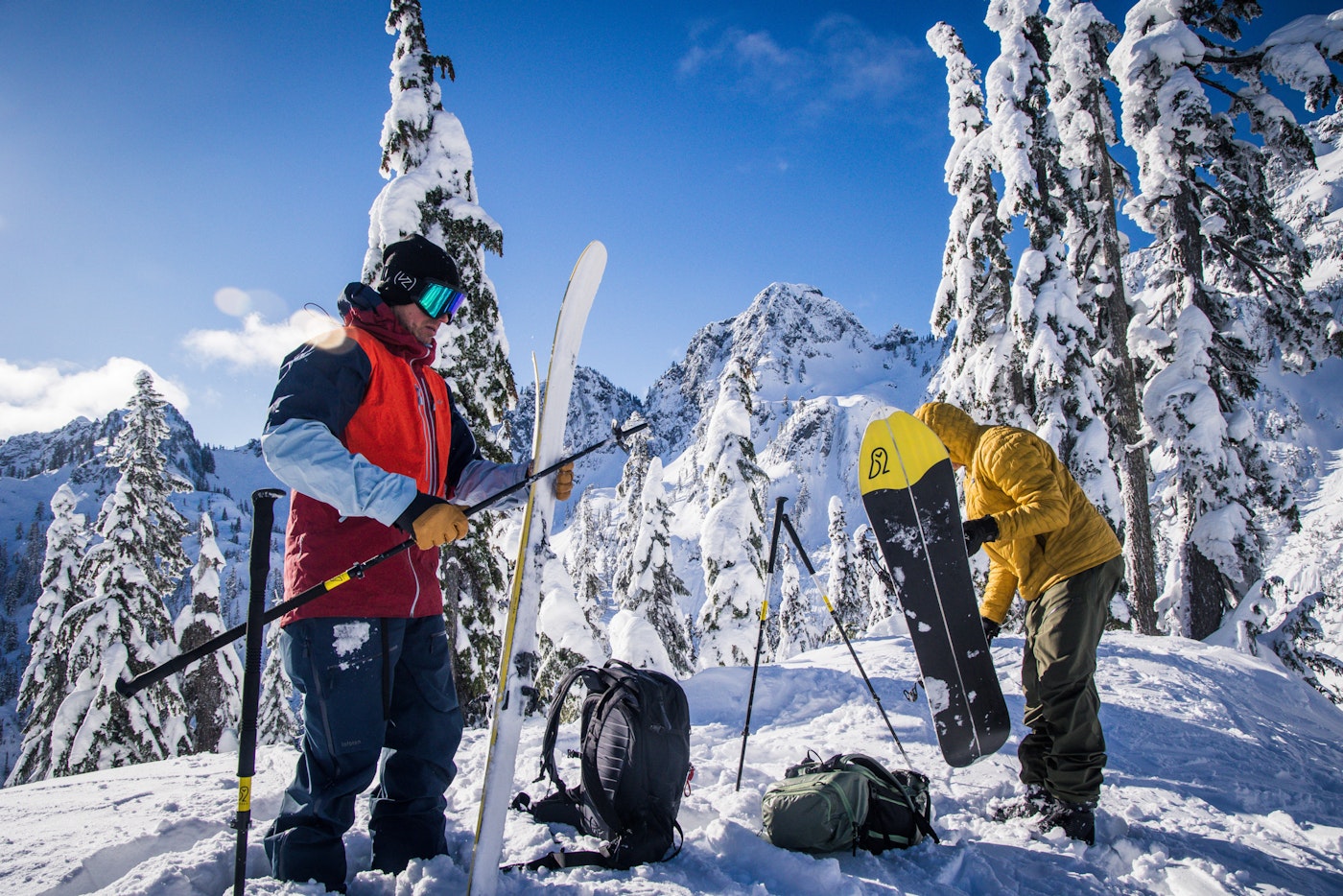
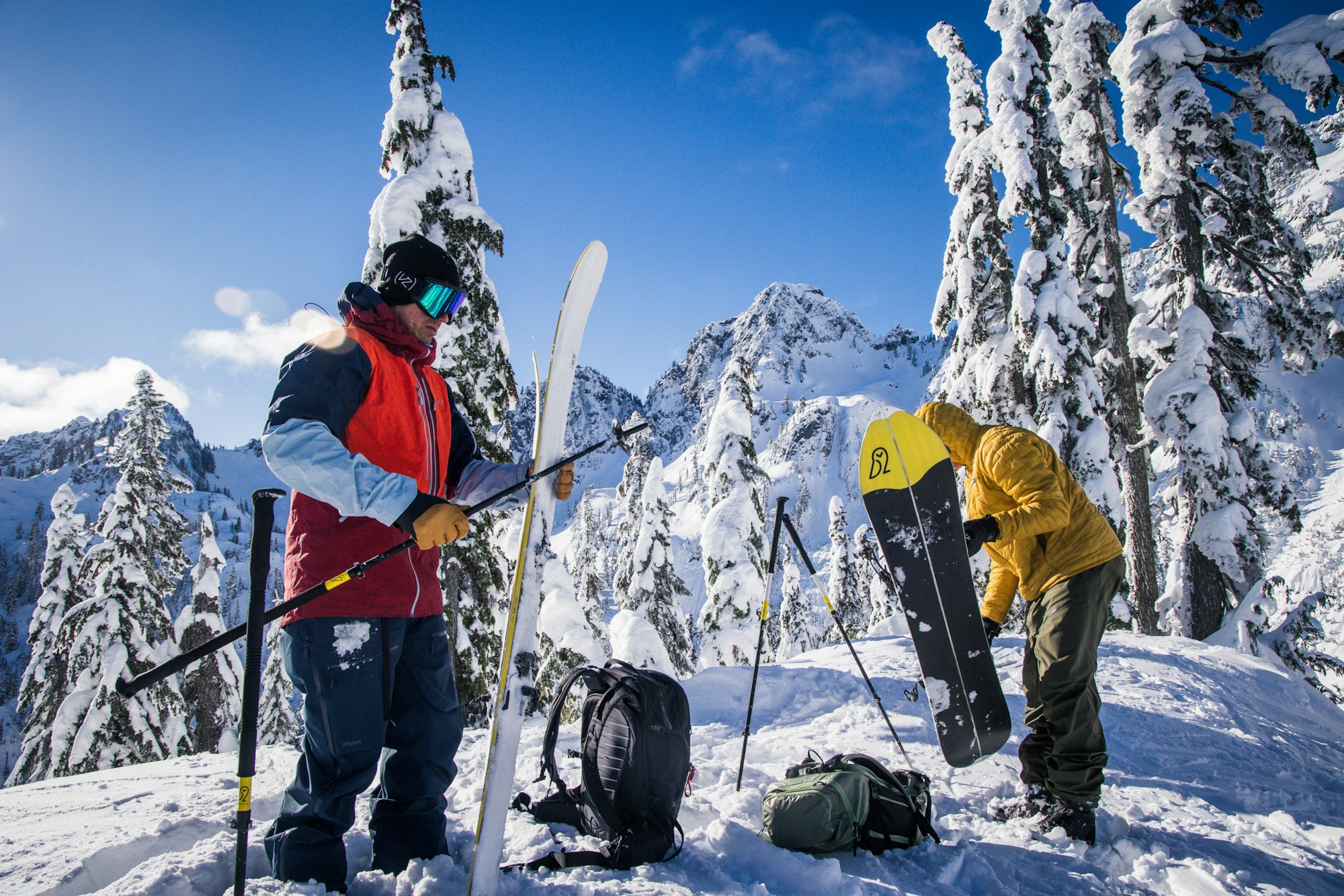
PHOTO: Carson Meyer | SKIER: Matt Sterbenz
The Backstory
In their early years, Sterbenz and Fujas were ski bum purists. “After finishing college in the Midwest, I set out for Tahoe in my black Toyota pickup and ‘Hot Dog’ was my north star,” says Sterbenz, referring to the 1980s soft ski porn flick filmed in Squaw Valley. In the late ‘90s and early 2000s freeskiing was gaining serious momentum. Athletes were pushing boundaries and Sterbenz saw an opportunity to upgrade the equipment to enhance their performance. In 2002 he started 4FRNT Skis in Truckee.
“I wanted to plant a flag for freeskiing and put athletes in the driver’s seat,” he says. “There was such little innovation at the time, so you didn’t have to work every day and night to make gains. Anything different, like moving the waistline to the center of the ski to emulate twin tip design or raising the tail a bit higher, had a dramatic impact. There were so many easy, low-hanging areas of design to experiment with that it didn’t feel like we had to be ski engineers.” 4FRNT’s then progressive shapes are now commonplace. “The very sport that everyone said was a fad was suddenly setting the trend for skiing,” he says proudly.
Many in the industry were shocked when in 2018, after 16 years at the helm of 4FRNT, Sterbenz, widely considered one of the most influential players of the indie-ski movement, resigned to take a new gig as general manager of wintersports for a biotech company. Even he was surprised. “I was a skeptic,” he says. But after meeting Charlie Dimmler, a passionate backcountry skier and Checkerspot’s CEO, he realized he had the opportunity to not just change the ski industry, but also impact the planet.
The Innovation
Sterbenz brought a new dimension to ski design at 4FRNT by incorporating athletes into the design process. But after speaking with Dimmler he realized a third dimension—materials—was missing. Almost all skis were built from the same toxic materials. To build a higher performing ski with renewably sourced components was the ultimate challenge. And no other ski brand had access to the research Checkerspot was bringing to the table.
WNDR Alpine’s first ski, the Intention 110, used materials sourced from lab-grown microalgae to replace petroleum products. Not only was the ski more sustainable than traditional constructions, it was also lighter than most models and could perform in conditions ranging from packed snow to deep pow due to the materials’ stability-enhancing properties. In late 2019, Sterbenz convinced Fujas to leave longtime sponsor K2 and join WNDR Alpine to help quality-test for performance as well as head up the brand’s marketing. “I’m still getting used to saying I work for a biotech company,” jokes Fujas. Together, they’ve made WNDR Alpine skis one of the top performers in the industry and have now added snowboards and apparel to the brand’s portfolio.
Checkerspot’s Pollinator Kit is a way for designers and creators to have access to biobased sourced materials, which are typically hard to access. The hope is that the kit sparks more exploration. “I have biobased climbing holds and skateboard wheels at home,” says Fujas. “Jay-Z’s producers came to Checkerspot and we made 70 percent biobased records for him. There are so many interesting applications.”
You’ll start to see some of those wild new innovations in early 2024 when Checkerspot debuts a sister brand, WTHR (weather), focused on skincare made with Checkerspot’s microalgae oil. Products will be formulated with mountain athletes in mind, offering protection from the elements. If algal oil can translate from skis to skincare, it may just be the magic do-it-all ingredient. Checkerspot is even working with San Francisco restaurants to develop culinary uses for other forms of algae oil.
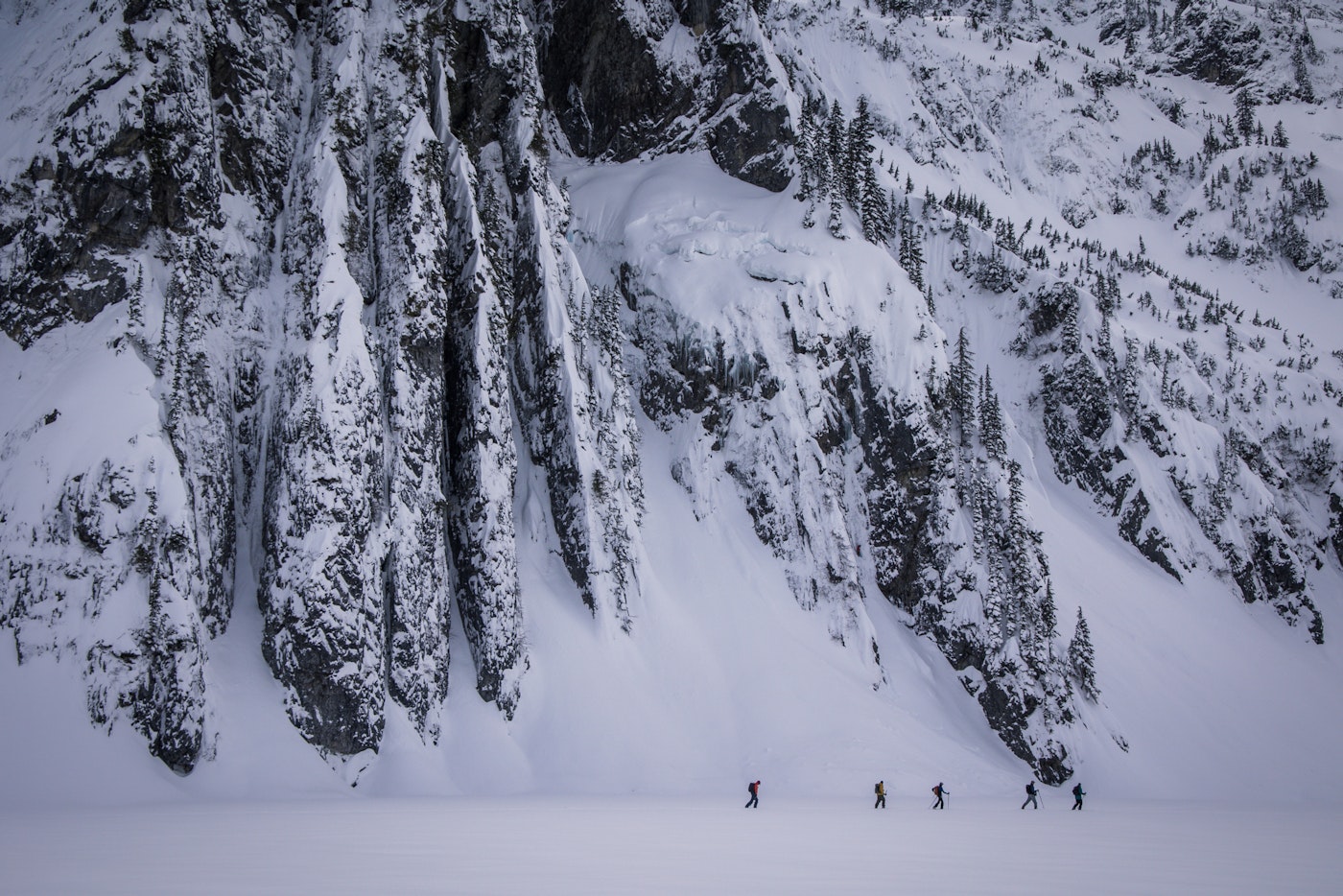
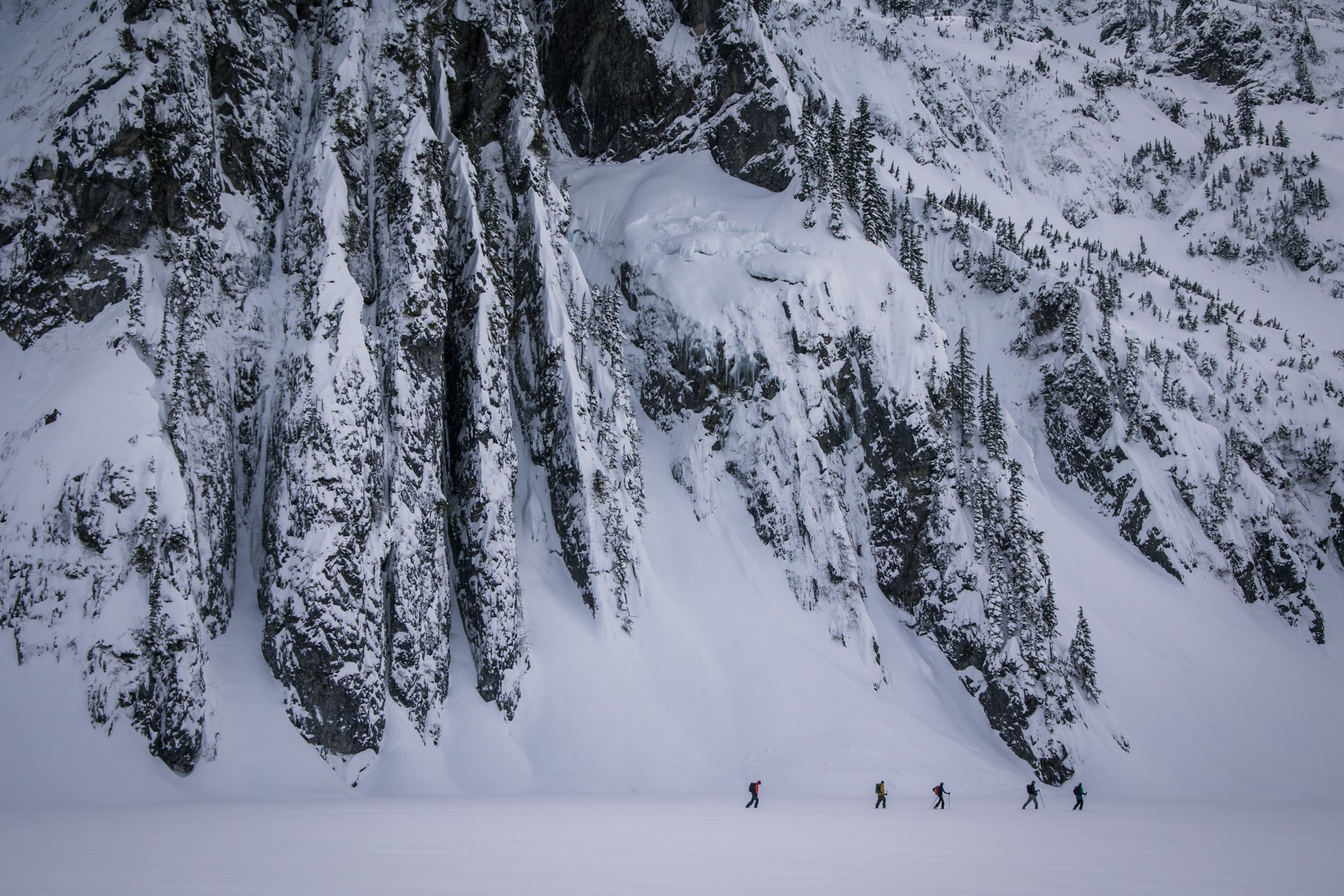
PHOTO: Carson Meyer
Advancing the Industry
Sterbenz and Fujas are focused on more than just building a great product. They’ve set out to build an iconic brand and show the next generation of pro skiers that they can forge a viable career in skiing beyond competing. “When I was coming up, the next chapter meant being the team manager for your former sponsor,” says Sterbenz. “You were the poster boy and then went to run the print shop making posters for the new kids. But when you bridge your learnings in action sports to new industries, well, you’re suddenly compensated for the professionalism you’ve earned as a skier. It’s hard to even imagine this was a path for me.”
Fujas says he feels grateful he’s able to continue to chase his ambitions as a skier while having a career with WNDR Alpine. “A lot of the life skills and knowledge you develop from skiing transfer to a workplace environment,” he says. “It’s about finding a brand or company that matches your values and respects your passions.” To that end, WNDR Alpine became the first ever manufacturer of skis to achieve B Corp certification in Spring 2020. “The way you treat your employees matters just as much as your eco creds,” says Fujas. “We’re not just talking, we’re walking the walk.”

